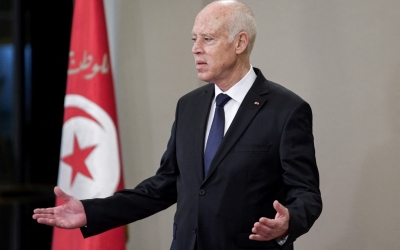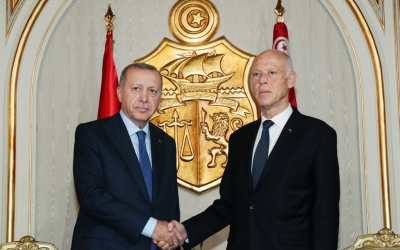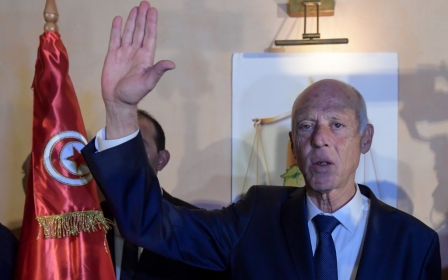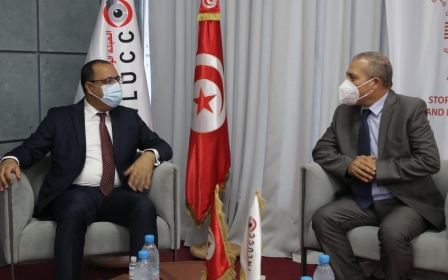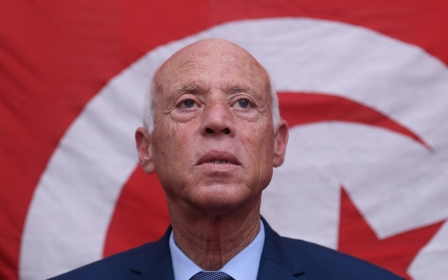US senators warn of growing instability in Tunisia as political crisis drags on
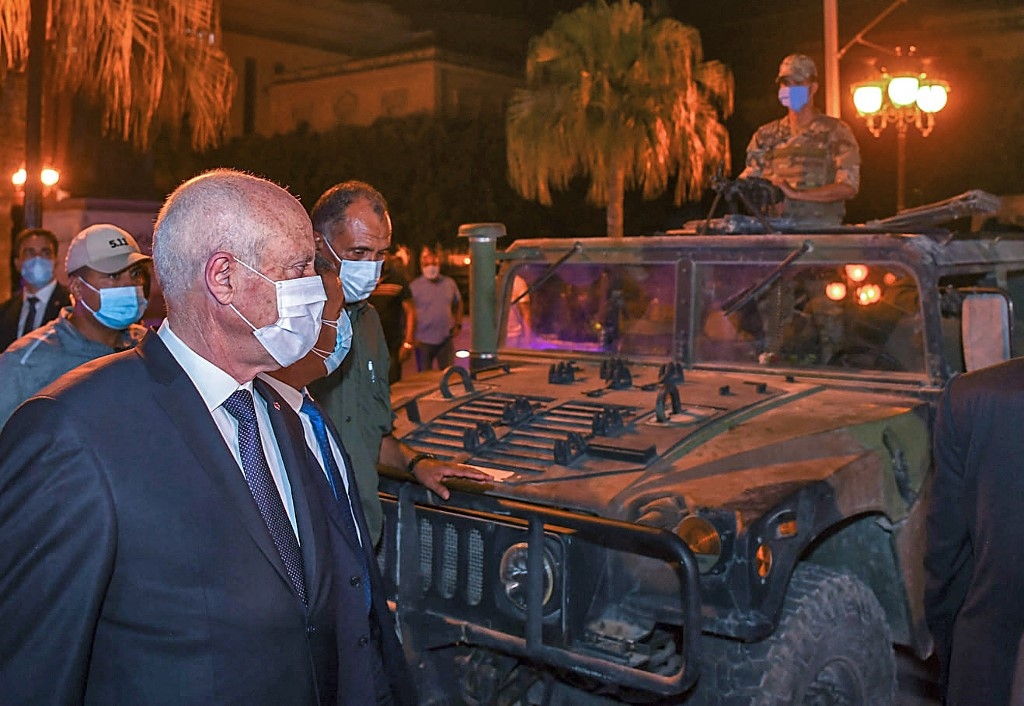
Washington is "deeply concerned" by growing tension and instability in Tunisia, following last week's power grab by President Kais Saied, US Senators Jim Risch and Bob Menendez have said.
"President Saied must recommit to the democratic principles that underpin US-Tunisia relations, and the military must observe its role in a constitutional democracy," the Senators said in a joint statement on Thursday.
On 25 July, Saied suspended parliament, sacked the prime minister and granted himself prosecutorial powers, arguing that extraordinary measures were necessary to fight corruption.
The president's political opponents sounded the alarm, warning Saied was aiming to impose a one-man dictatorial rule on the country - 10 years after a popular uprising toppled longtime autocrat Zine El Abidine Ben Ali.
The Biden administration has largely sidestepped questions on whether Saied's actions constitute a coup, underscoring how the White House is trying to balance engagement with Saied with concerns over the fate of the only democracy to emerge from the Arab Spring uprisings.
New MEE newsletter: Jerusalem Dispatch
Sign up to get the latest insights and analysis on Israel-Palestine, alongside Turkey Unpacked and other MEE newsletters
Asked in a press briefing on Monday to clarify the US position, State Department Spokesman Ned Price stated: "More important than the question of labels is the critical work of supporting Tunisia in its return to that democratic path, and that's what we're focused on right now."
Saeid, a political outsider and former constitutional law professor, says he is acting legally under article 80 of the constitution - which allows the president to claim exceptional powers "in the event of imminent danger", claiming the country's dire economic situation, widespread corruption, and coronavirus mismanagement required a strong executive authority to save the country.
Critics allege the president is intent on doing away with democracy and erasing gains made since the Arab Spring. His moves were followed by a crackdown on political opponents, a raid on Al Jazeera's offices in Tunis, the issuance of arrest warrants against legal advocates and the banning of protests.
The Tunisian constitution states "measures necessitated by this exception situation" can be used, but there must be a consultation with the speaker of parliament and the constitutional court - an institution that has not yet been created in Tunisia, one of the main unfulfilled promises of the 2011 revolution - must be informed.
A source in the US Senate told Middle East Eye that it was unlikely that Washington would label Saied's actions a coup. "This is a legal definition," the aide to a Democratic Senator said.
"While the president's dismissal of the prime minister and dismissal of parliament is an alarming power grab, it's unlikely the State Department's lawyers would say this legal threshold has been met," the aide added.
Will Todman, a fellow at the Center for Strategic and International Studies in Washington DC, told MEE he was not surprised by the Biden administration's soft response to the events unfolding in the North African country.
"They have been taking a careful approach to events in Tunisia, and I don't think there is enormous alarm in [the] administration that this is a coup or that Saied has authoritarian designs," he said.
Washington's wait-and-see approach
Since Saied's move, the Biden administration has been in frequent contact with the Tunisian president, with both Jake Sullivan, the US National Security Advisor, and Antony Blinken, the US Secretary of State, holding calls with Tunis.
In an interview with Al Jazeera, Blinken stated: "I had a long conversation with the president [President Saied] and urged him to make sure that Tunisia returns to the democratic path as quickly as possible.
"So our strong hope and expectation is that Tunisia will return to that democratic path, act consistent with the constitution, unfreeze the parliament," he added.
Blinken's language was seen by some as a stronger position than that of the State Department which initally said it was "monitoring events".
The Biden administration's measured rhetoric is similar to its handling of other developments in the region. When Israel launched its latest offensive in Gaza in May, the White House resisted calls from within the Democratic party to call for an immediate ceasefire, and held off applying pressure on Israel to end its bombing campaign on the enclave under siege.
The administration has also approved arms sales to Egypt and Saudi Arabia, key US allies in the region, despite concerns from rights groups and members of Congress over the two countries' human rights records.
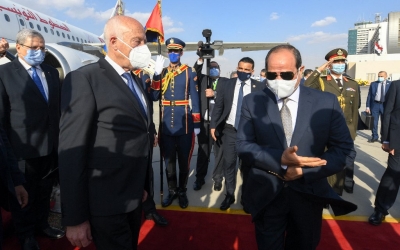
Todman said that, on the issue of Tunisia, Biden was trying to keep all his options open. "In Congress, it's probably a slightly less pragmatic response to the administration's positions," he said.
Congressman David Price, chairman of the House Democracy Partnership, told MEE that the administration and Congress were aligned over a response to the crisis in the North African country.
"I believe all of us want the same thing - a strong and independent legislature working in harmony with the president to tackle Tunisia's important health, economic, and judicial problems," the congressman said in a written statement.
While there are broad bipartisan calls in the US for Saied to reverse course, there are signs he has widespread popular backing at home. According to a poll by Emrhod consulting, some 87 percent of Tunisians support Saied.
"That is something that Saeid is going to bring up in conversations with Washington," Intissar Fakir, director of the Middle East Institutes North Africa and Sahel Program, told MEE, cautioning that Tunisians would expect him to show results soon and support could easily wane.
While Tunisia has enjoyed greater political freedom than its neighbours, and is credited with having a free media and relatively strong civil society, its economy lies in tatters, with youth unemployment standing above 35 percent in the year before the coronavirus pandemic.
Even though the country enjoys a relativly stable security situation, Tunisians were the largest national group emigrating to Italy last year, making up 42 percent of new migrant arrivals compared with just five percent in 2017.
Asked about Saeid's support within Tunisia, Price acknowledged the dire economic situation, but stated solutions, "cannot be achieved by fiat or by bypassing representative institutions".
"There is no doubt that the Tunisian people's concerns are valid, and must be addressed by a new government responsive to the people's needs," he added.
Aid as leverage
In the aftermath of Saied's power grab, US Congresswoman Ilhan Omar was among one of the first voices in Washington to urge Biden to halt military aid to the country.
"If we believe in democracy and human rights, we should be loudly decrying the current assault on democracy in Tunisia -the heart of the Arab Spring," Omar tweeted. "If Tunisia's president does not reverse course, we should suspend all security aid, as is required by law."
Under domestic law, the US is obliged to cut off direct assistance to governments that came to power by overthrowing elected leaders.
Since the Arab Spring, both Democratic and Republican administrations have supported Tunisia with infusions of economic assistance and diplomatic engagement, contributing more than $1.4 billion.
Funding through USAID to the country amounted to nearly $685m over the past 10 years, drawing NGOs and large US contractors to the country of 11 million.
Under former President Donald Trump, Congress approved more assistance to Tunisia than the previous US administration requested for Tunis, with support for Tunisian democracy emerging as a popular cause for US politicians.
Unlike other countries in the region, it didn’t carry the risk of conflict, and Tunisia appeared to be on a path to democracy, albeit fragile.
Congressman David Schweikert, co-chair of the Congressional Tunisia Caucus, told MEE that the international community "hopes to see the Tunisian peoples' continued success in developing a democracy".
There has yet to be official talk of suspending or reviewing aid to Tunisia. Todman says Washington's commitment to maintaining aid was one reason why the US may be reluctant to call the recent event a coup: "It would have serious implications for what the administration can do."
Under a statement issued by Saied's office when he invoked article 80, he said he would appoint a prime minister within 30 days.
Civil society leaders, including the country's strong labour unions, have been urging the president to press forward on forming a new government, and on Thursday the country's former prime minister, Hichem Mechichi, was seen for the first time in 10 days.
MEE reported last month that Mechichi was physically assaulted the night before he agreed to resign. MEE stands by its report.
If the situation worsens, or Saied extends his mandate, pressure may build within Congress to use US aid as leverage, but Fakir said he was "not seeing any indication of punitive action yet".
The US also has security interests within Tunisia, which is a crucial partner in counterterrorism operations. In 2020 the country received $85m in foreign military financing from the US.
On Wednesday, the moderate Islamist party Ennahda, which has been fiercely opposed to Saied's power grab, said it viewed recent developments as an opportunity to return the country to the democratic path.
In a statement posted on Facebook, Ennahda stressed its "commitment to dialogue with all national actors, foremost of whom is the president, in order to overcome the complex crisis, achieve social peace and implement the necessary reforms".
Tunisia has been governed by successive technocratic governments since early 2020, while Ennahda has held the majority of seats in parliament since the 2019 elections. The last time Ennahda led the government was in 2013.
Middle East Eye delivers independent and unrivalled coverage and analysis of the Middle East, North Africa and beyond. To learn more about republishing this content and the associated fees, please fill out this form. More about MEE can be found here.


